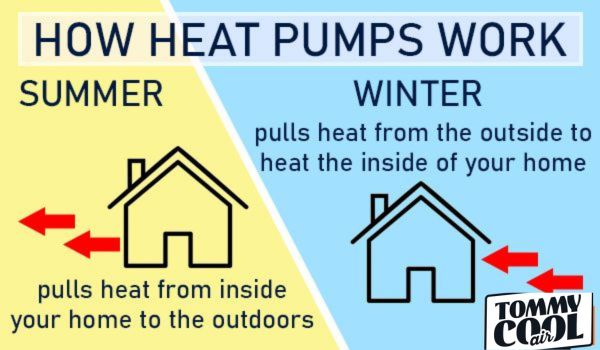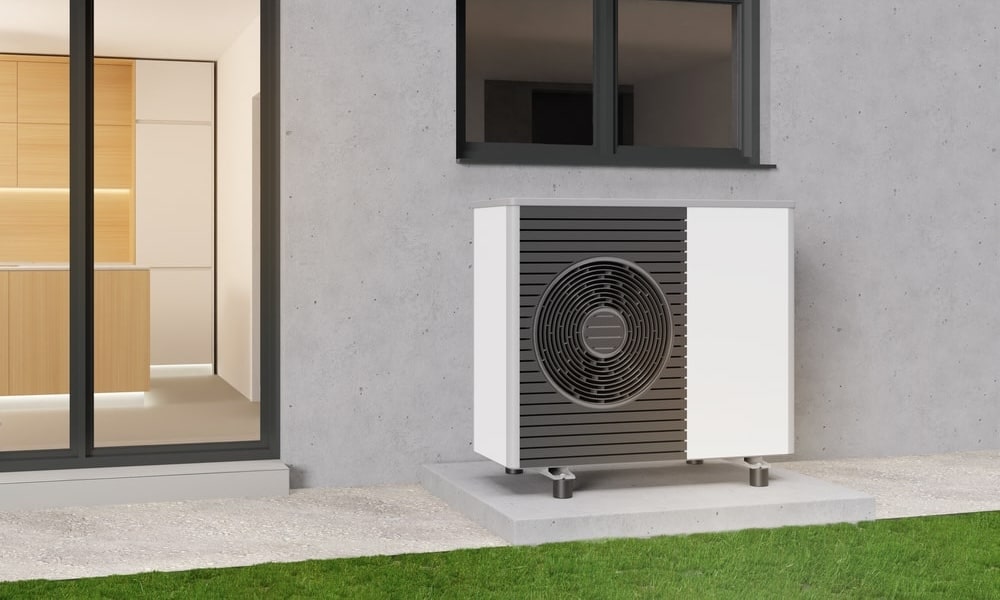Understanding Heat Pumps
What is a Heat Pump?
Heat pumps are appliances designed to transfer heat from one point to another while using minimal energy resources. Their operation relies on transmission rather than direct generation, making them an efficient means for both heating and cooling your home. In the summer, heat pumps work by extracting heat from inside your home and releasing it outside, effectively cooling your living space. This dual functionality makes heat pumps a versatile and energy-efficient choice for year-round climate control.
Types of Heat Pumps
Heat pumps come in three varieties: air-source, ground-source and water-source. Each variant has a distinctive way of gathering heat from its environment, while all have the same trait of being energy efficient.
Heat Pump Efficiency
Heat Pump Electricity Usage
One typical concern many people have is the electricity usage of heat pumps. While heat pumps need electricity to function, they are much more energy-efficient compared to conventional heating and cooling systems. On average, heat pumps can deliver three to five times more thermal energy than the electrical energy they consume. For example, a heat pump might use 1 kWh of electricity to produce 3 to 5 kWh of heating or cooling energy. This efficiency comes from their ability to extract and transfer heat from the environment, whether from the air, ground, or water. As a result, heat pumps consume less energy to generate the same amount of heating or cooling. This leads to noticeable reductions in overall power usage and energy bills.
Do Heat Pumps Use a Lot of Electricity?
Heat pumps are well known for their energy-saving abilities compared to more traditional heating solutions such as gas furnaces or electric resistance heaters. Their energy efficiency can be measured using their Coefficient of Performance (COP), which shows the ratio of output heat energy versus electrical input energy input.
Heat pumps typically feature a COP ranging between 3.0 to 5.0, meaning that for every unit of electricity used, three to five units of heat energy are produced. In contrast, electric resistance heaters have a COP of about 1.0, converting all electrical energy into heat without any efficiency gains.
Cost-Effectiveness of Heat Pumps
Do Heat Pumps Reduce Energy Bills?
The answer is an absolute yes. Heat pumps may save a significant amount of money on energy costs by increasing efficiency and using less power than typical HVAC systems, particularly in locations with less extreme temperatures.
Heat Pump vs Gas Furnace in Texas
Texas, with its hot summers and moderate winters, is a perfect climate for heat pumps to work properly. Heat pumps are frequently more efficient than gas furnaces in moderate winter regions, resulting in cheaper heating expenditures.
Long-Term Savings
The initial cost of a heat pump may be more than in a standard furnace, but the savings in heat pump power consumption rapidly outweigh the original cost. Over time, the lower monthly energy expenses will result in considerable financial gains.

Environmental Impact
Reducing Carbon Footprint
Heat pumps save money and help the environment. They reduce a household’s carbon impact by using electricity instead of fossil fuels. In areas where renewable sources generate power, the environmental benefits are even greater.
Heat Pump Power Consumption and Sustainability
The environmental impact of utilizing a heat pump is strongly related to its electricity usage. Heat pumps that are extremely efficient use less energy, which contributes to environmental conservation as well as sustainability.
Choosing the Right Heat Pump
Factors to Consider
When choosing a heat pump, don’t forget to take into account the size of your property, the local environment, and the kind of unit that best meets your requirements. A properly sized as well as installed heat pump increases efficiency and energy savings.









